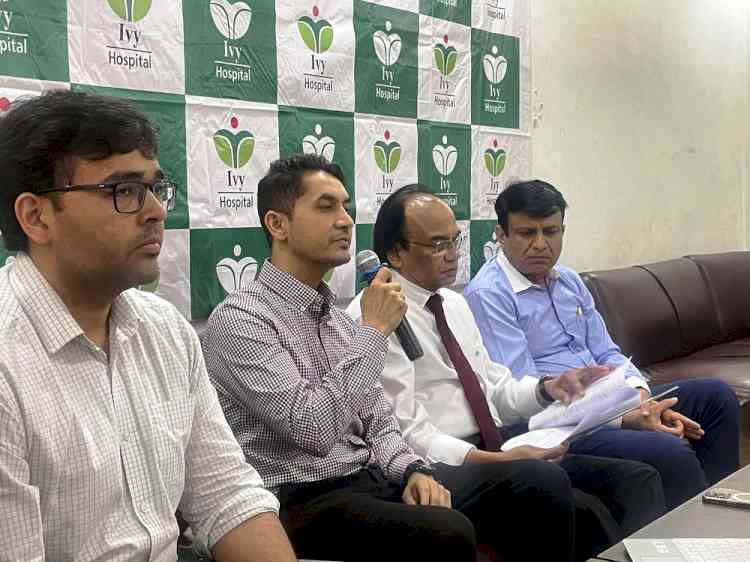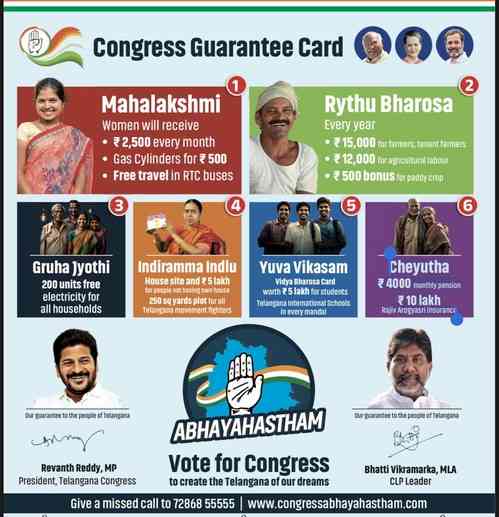Secular Government splurges on religion
Author(s): Joginder SinghThe Supreme Court has directed an end to the Haj subsidy. But tax-payers continue to fund the grand iftaar parties that are thrown by various Government authorities. The Constitution of India enjoins that the country...

The Supreme Court has directed an end to the Haj subsidy. But tax-payers continue to fund the grand iftaar parties that are thrown by various Government authorities.
The Constitution of India enjoins that the country will be a secular state which will not prefer one religion over another. But consumed by their insatiable desire for votes, politicians, whenever it suits them, resort to communalism under the garb of liberalism to please the minorities who form a sizeable vote-bank.
The Haj subsidy is an example of such appeasement politics. All citizens of India irrespective of their religious affiliation pay for the subsidy that costs the national exchequer crores of rupees. The programme was started in 1973 to subsidise the pilgrimage to Mecca in Saudi Arabia.
In 2010, in response to an RTI query, the Ministry of External Affairs said that the Haj subsidy was being provided from 1991. It also said that in the period between 2005 and 2010, a total of 6,40,792 Muslims in India availed of the subsidy at a huge cost of Rs 2,891.77 crore to the national exchequer. And this is only a five-year figure that does not include the salary, TA and DA of the staff who handle the subsidy.
It will be safe to assume, as an intelligent guess, that the Haj subsidy over the last 37 years has cost the country at least Rs 10,000 crores. Now take into consideration the fact that no other religious community in India, apart from the Muslims, receives any such subsidy, and the game-plan of the politicians becomes clear.
Interestingly, in August 2010, the Union Ministry for Minority Affairs formally opposed the Haj subsidy arguing that the scheme was contrary to the teachings of Islam. But the Union Government ignored the statement until 2011, when it proposed that the amount of Government subsidy per person would be decreased, and by 2017, removed completely. Instead, a ‘premium’ is to be charged from well-off Hajis to cross-subsidise the travel cost of the poorer Hajis. However, as of now, there is no sign of charging anything from well-off Muslims. to cross subsidise the not well-off Muslims for Haj.
Incidentally many Muslim scholars and political leaders have urged that the subsidy be phased out because Hindus view the subsidy as preferential treatment that is meted out to the country’s Muslim minority. Another Muslim thinker has also said that, “Muslims in general are not in favour of the Haj subsidy”. Another Muslim MP has, declared that the Haj subsidy is a technical violation of Islamic Shari’ah as the Quran declares that Hajj should be performed by Muslims using their own resources.
In fact, influential Muslim lobbies in India have regularly insisted that the Haj subsidy should be phased out as it is un-Islamic. Other Muslim leaders have argued that the Haj subsidy is ‘un-Islamic’ and that Haj money should be invested in providing education and health-care instead. On May 8, the Supreme Court also ordered the Government to end its Haj subsidy within 10 years.
Today even Pakistan, a Muslim country, does not provide any such subsidy. The Lahore High Court back in 1997 had ruled that any expenditure defrayed by the Government in subsidising Hajis was contrary to the Shari’ah. Yet in India, the subsidy programme has continued for nearly 30 years. There is no reason for this except the lack of political will. Politicians only wish to cultivate the Muslim vote. It is amazing that on the one hand the Government talks about poverty alleviation and on the other hand, it splurges tax payers’ money on vote-bank politics.
This is inspite of the fact that the Union Ministry of Finance has said that the Government cannot spend tax payers’ money on religion-oriented celebrations such as iftaar parties. Yet, public funds to the tune of Rs 1.75 crore have been spent on such parties. In fact, in reply to another RTI query, the Department of Expenditure under the Union Ministry of Finance has said that, while expenses on iftaar parties are not allowed from the national exchequer, host departments didn’t seek its permission for such parties.
The Rajya Sabha Secretariat, which has spent Rs 22.75 lakh on five iftaar parties since 2007 has said: “Yes, the Secretariat bears expenses incurred in this regard.” When asked under which rule, it replied: “There is no rule. It is as per the convention.” It, however, added that “expenditure is met on shared basis in the ratio of 2:1 between the Rajya Sabha Secretariat and the Ministry of External Affairs.”
The Lok Sabha Secretariat said spending public money on iftaar parties was allowed and that it has spent Rs 5.83 lakh on two such parties in 2010 and 2011. “Expenditure on iftaar parties is met from the hospitality grant of the Lok Sabha Secretariat,” it added.
The PMO’s response to the RTI request, on the other hand, was interesting: “Information sought is not a part of records held by this office.” Yet, the PMO has hosted six iftaar parties since 2004 at a cost of Rs 1.03 crore, which, it said, was borne by the Ministry of External Affairs and the CPWD.
The MEA, on its part, has said that it has spent about Rs 41.48 lakh on 10 iftaar parties, including the ones hosted by the PMO, since 2004. But to all other queries on the matter, it replied: “No specific information available.”
Incidentally taking a queue from the Haj subsidy case, a former Chief Minister of Andhra Pradesh, a Christian himself, had even introduced a subsidy for Christian pilgrims visiting Israel. The Andhra Pradesh Federation of Churches, an ecumenical body of bishops and church leaders, is also demanding subsidy for poor Christians in the State to visit holy sites in Israel. Following requests from local churches, the Tamil Nadu Government in December 2010 issued an order providing 500 Christian with Rs 20,000 each as subsidy to enable them to undertake a pilgrimage to Jerusalem during 2011-12.
Clearly, political parties are vying with one another to garner minority votes. The Uttar Pradesh Government takes the cake in this regard. It has given Rs 3,00,000 to each Muslim girl who passes the matriculation exam. It is also proposing a Bill to revoke ‘false cases’ lodged against Muslims. But this is something for the courts to decide and beyond the jurisdiction of the political class. But then again, it is not fair to find faults with the Uttar Pradesh Government when the Union Government itself is indulging in vote-bank politics.
While the State Governments of our country have never been good at following the Union Government’s directives, they have never failed to imitate the ways of New Delhi in such matters. It is time that the Union Government became a role model for the State Governments and made sure that the tax payers’ money is spent on development instead of on schemes that are not even sanctioned by the Constitution.

 cityairnews
cityairnews 
















